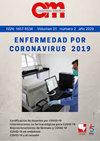吞噬细胞在侵袭性曲霉病中的分子半满机制
IF 1.3
4区 医学
Q3 MEDICINE, GENERAL & INTERNAL
引用次数: 0
摘要
曲霉属真菌主要影响肺组织,发生在宿主免疫系统完整性受损时。人体利用来自机械和酶防御的免疫能力条件以及先天免疫系统细胞的作用,也利用适应性反应来控制感染。中性粒细胞、巨噬细胞和树突状细胞是至关重要的,因为抗真菌效应细胞具有识别真菌结构和触发特异性反应的表面受体。tlr和Dectin-1在这种相互作用中研究得最多。tlr负责细胞因子的产生和释放,Dectin-1在吞噬颗粒识别和ROS的产生中至关重要。目前研究得最好的细胞因子是TNF-α、IFN-γ和IL-12。本文综述了侵吞细胞上的分子受体参与曲霉识别的主要机制,了解免疫能力情况下的免疫反应及其在免疫缺陷生物体中的比较,为控制侵袭性曲霉病提供参考。本文章由计算机程序翻译,如有差异,请以英文原文为准。
Molecular half-full mechanisms by phagocityc cells on invasive Aspergilosis
Fungus from the Aspergillus genus mainly affects lung tissue, occurring when the integrity of the host immune system is compromised. The human body uses immunocompetence conditions from mechanical and enzymatic defenses and the action of the innate immune system cells and also uses adaptive responses to control infection. Neutrophils, macrophages, and dendritic cells are critical as antifungal effector cells possess surface receptors that recognize fungal structures and trigger specific responses. TLRs and Dectin-1 the most studied for this interaction. TLRs are responsible for the production and release of cytokines and Dectin-1 is essential in the phagocytosis of the particle recognition and production of ROS. The best-studied cytokines and its crucial role in the response to Aspergillus spp. are TNF-α, IFN-γ, and IL-12. In this work, we reviewed the main mechanisms related to molecular receptors on phagocytic cells involved in the recognition of Aspergillus spp. Understanding the immune response in situations of immunocompetence and its comparison in immunodeficient organisms could provide alternatives to control invasive aspergillosis.
求助全文
通过发布文献求助,成功后即可免费获取论文全文。
去求助
来源期刊

Colombia Medica
MEDICINE, GENERAL & INTERNAL-
CiteScore
2.00
自引率
0.00%
发文量
11
审稿时长
>12 weeks
期刊介绍:
Colombia Médica is an international peer-reviewed medical journal that will consider any original contribution that advances or illuminates medical science or practice, or that educates to the journal''s’ readers.The journal is owned by a non-profit organization, Universidad del Valle, and serves the scientific community strictly following the International Committee of Medical Journal Editors (ICMJE) and the World Association of Medical Editors (WAME) recommendations of policies on publication ethics policies for medical journals.
Colombia Médica publishes original research articles, viewpoints and reviews in all areas of medical science and clinical practice. However, Colombia Médica gives the highest priority to papers on general and internal medicine, public health and primary health care.
 求助内容:
求助内容: 应助结果提醒方式:
应助结果提醒方式:


